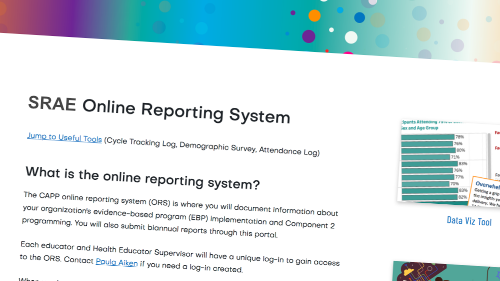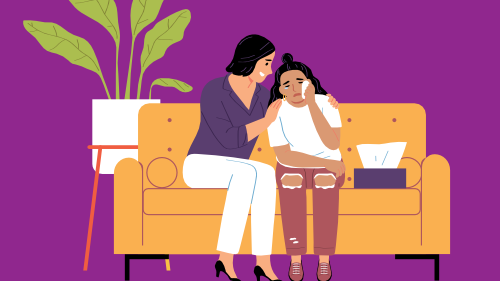Sexual Risk Avoidance Education Initiative
This section provides an overview and resources for SRAE providers in New York State.
New York State's Sexual Risk Avoidance Education (SRAE) initiative offers prevention programs aimed at delaying the onset of sexual activity, preventing abuse, and supporting a healthy transition from early to middle adolescence for children in priority communities. With support from federal Title V State SRAE funds, the New York State Department of Health (NYSDOH) launched the current funding cycle in 2024. This initiative utilizes an integrated model of evidence-based education and adult-supervised activities and opportunities for youth ages 10-13, together with parenting education classes for parents, guardians, and caregivers. Eleven community-based projects were selected to implement the state SRAE model through a competitive Request for Applications process.
Training and evaluation for each project is supported by the ACT for Youth Center for Community Action through funding from NYSDOH.
Component 1: Evidence-Based Education
For component 1 (C1), community projects provide sexual risk avoidance education through evidenced-based programs (EBPs):
Component 2: Adult-Supervised Activities
Through component 2 (C2), projects offer adult-supervised activities that create educational, recreational, or vocational opportunities. Component 2 activities both stimulate growth — cognitive, social, physical, and/or emotional — and provide a context for building positive relationships with adults and peers. Youth involved with component 2 are typically also participants in component 1 evidence-based programming.
Component 3: Parenting Education
The purpose of component 3 (C3) is to strengthen the communication and supervision skills of parents, guardians, and other adult caregivers. SRAE projects incorporate education for caregivers of youth involved in components 1 and 2 to improve knowledge and build communication skills, especially in relation to adolescent development, parental values, sexual health, and risk taking. Education may also be provided to other adults in the community through venues such as schools, workplaces, and other community settings.
Referral
Since young people reached through this initiative may require additional supports that are outside the scope of the SRAE program, projects refer participants to service providers as necessary. Funded programs have mechanisms in place to provide referrals for substance abuse, mental health issues, and health assistance programs, among other services.
Evaluation
SRAE projects actively use performance data to improve their services to youth and their parents/caregivers. Quality improvement data are drawn from implementation documentation, participant surveys, and regular observations of program delivery.
Trauma-Informed Approaches
Youth-serving organizations often provide services for populations at a heightened susceptibility for experiencing trauma, and may play a significant role in building protective factors for young people in their programs. SRAE projects deliver programs using a trauma-informed approach that both takes past trauma into account and acts to prevent additional trauma.




